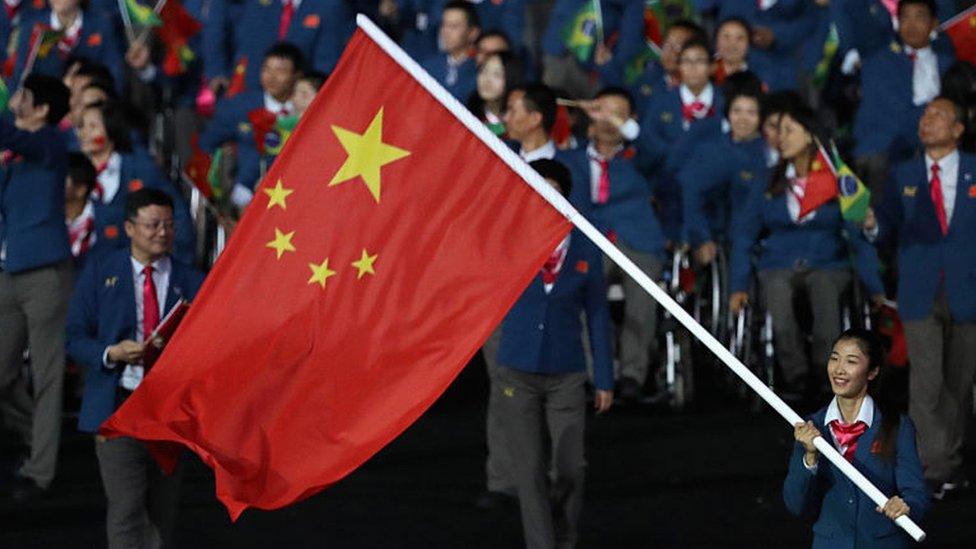Taiwan: A pawn in Trump’s chess game with China?
- Published
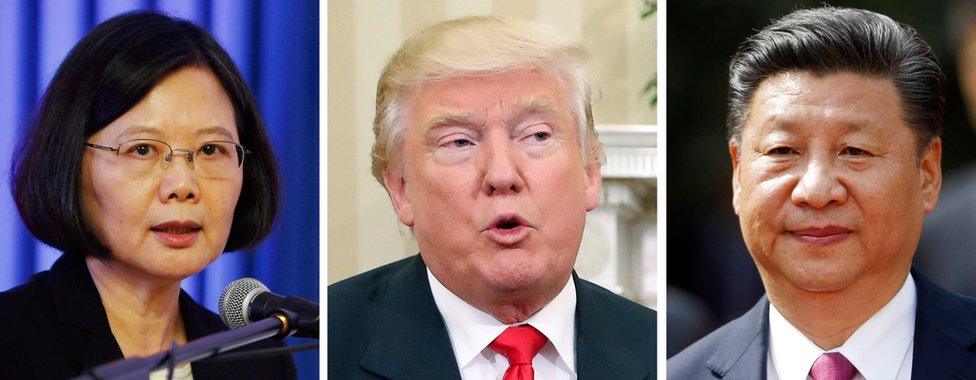
Mr Trump (centre) will have to negotiate the delicate relationship with Taiwan, led by Tsai Ing-wen (left), and China, led by Xi Jinping (right)
For President-elect Donald Trump, the biggest issue in the US relationship with China is trade. But for Beijing, it's Taiwan.
Mr Trump and his team know this and it's becoming increasingly clear that they hope to use Taiwan as a bargaining chip to get what they want from China.
In his latest remarks, in an interview with Fox News on Sunday, the president-elect suggested that the US should only continue to acknowledge China's position - that Taiwan is part of China - if Beijing agrees to make concessions.
"I fully understand the 'one China' policy, but I don't know why we have to be bound by a 'one China' policy unless we make a deal with China having to do with other things, including trade," Mr Trump said.
While there may be truth to some critics' assertions that Mr Trump doesn't adequately understand foreign policy, or Washington's decades-long formula for maintaining ties with China, it's more likely that he sees it at a business level - that you should get what you pay for. And right now, Mr Trump believes the US has been doing all the paying and hasn't got enough in return.
But will his stance bring opportunity or risk to Taiwan?
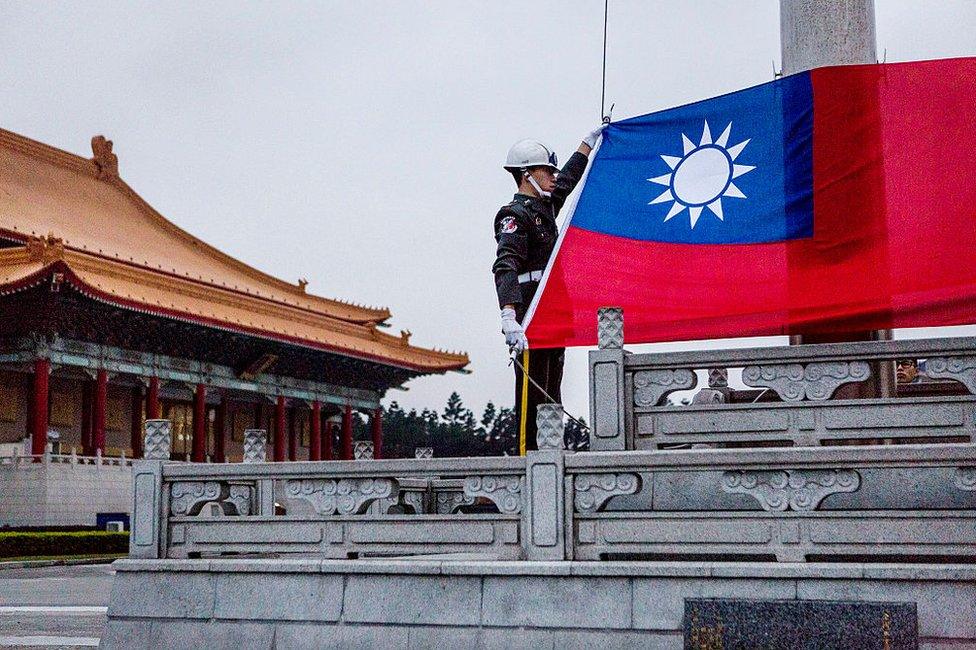
Taiwan has been ruled separately for most of the past century
That's the question being asked in Taiwan, an island ruled separately from mainland China for most of the past century, which Beijing believes was unfairly snatched from it, first by Japan at the end of the First Sino-Japanese War and then by the nationalists at the end of the Chinese civil war in 1949.
The administration of Taiwan's President Tsai Ing-wen initially viewed Mr Trump's election victory with apprehension. There were concerns that the president-elect may not consider Taiwan - which he mentioned just once during his campaign - as important to his foreign policy.


But some members of Ms Tsai's administration and her ruling Democratic Progressive Party (DPP) believe Mr Trump's tough approach towards Beijing could enable Taiwan to build closer ties with Washington, its most important ally.
Tsai Shih-ying, a DPP foreign affairs policy maker and legislator in the parliament's foreign affairs and defence committee, said: "We can't say this will lead to the development of diplomatic relations between Taiwan and the US, but we want to develop a comprehensive relationship, such as being invited by the US to participate in Asia Pacific military drills."
"In terms of trade, we want US support in helping us join international trade groupings and sign a bilateral FTA with the US so as to reduce our dependence on China," he added.
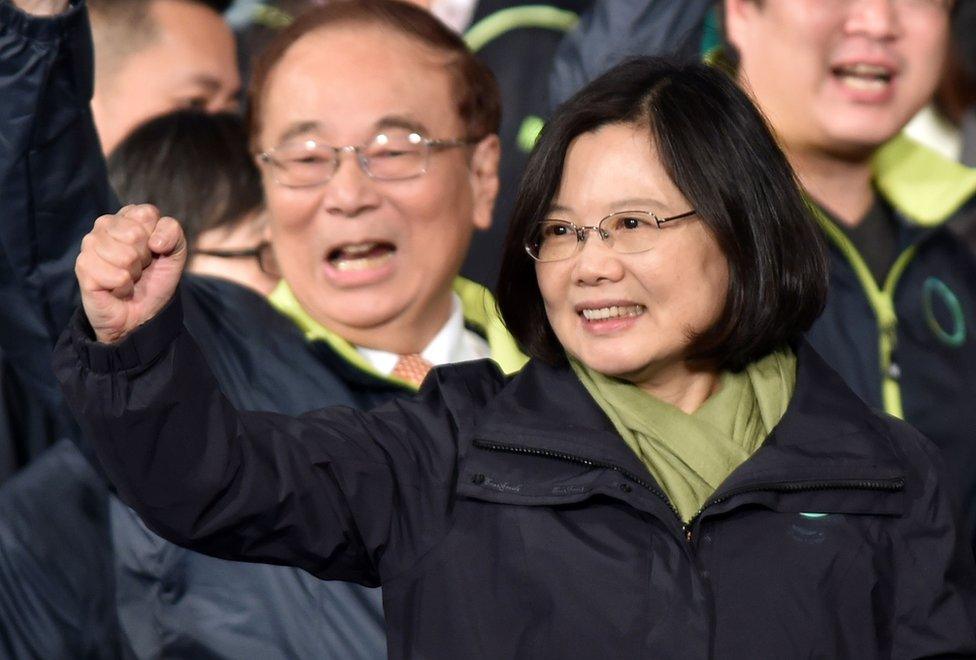
Ms Tsai, who has favoured a more independent position for Taiwan, was elected at the start of 2016
Mr Tsai said he expected Taiwan-US relations to improve under Mr Trump, including higher-level mutual visits between the two administrations' teams. But many Taiwanese people are unsure if that approach will be good for Taiwan.
They are unsure as to whether Mr Trump and his policy advisers will truly stand up for Taiwan if conflict breaks out with China, and they fear that Taiwan may be the biggest loser if Beijing grows angry.
"People used to say Taiwan is a little rabbit running around two elephants," said Alexander Huang, chairman of the Council on Strategic and War Gaming Studies, a Taiwanese think tank.
"No matter whether the two elephants are making war or love, Taiwan will be shaken by the elephants."

China has reportedly cut the number of Chinese tourists in Taiwan since Ms Tsai's election
It would be "better for Taiwan to have a good relationship with both sides", Mr Huang added. "Tsai Ing-wen needs to have a group of people to think about how to reopen dialogue with China; we can't put everyone on Trump's ship; we also need people to take care of business across the Taiwan Strait (with China)."
Some in Ms. Tsai's camp are uncertain about the consequences of a closer union with the US, and how China would react to improved relations.
"What we have to be careful about is this: Trump has a businessman's attitude, will he just use this as opportunity to bargain with China and sell out Taiwan," said Mr Tsai.
"We want to remind [Taiwan's] government to not go too fast. If China can't accept this, its response will be very strong."
- Published12 December 2016
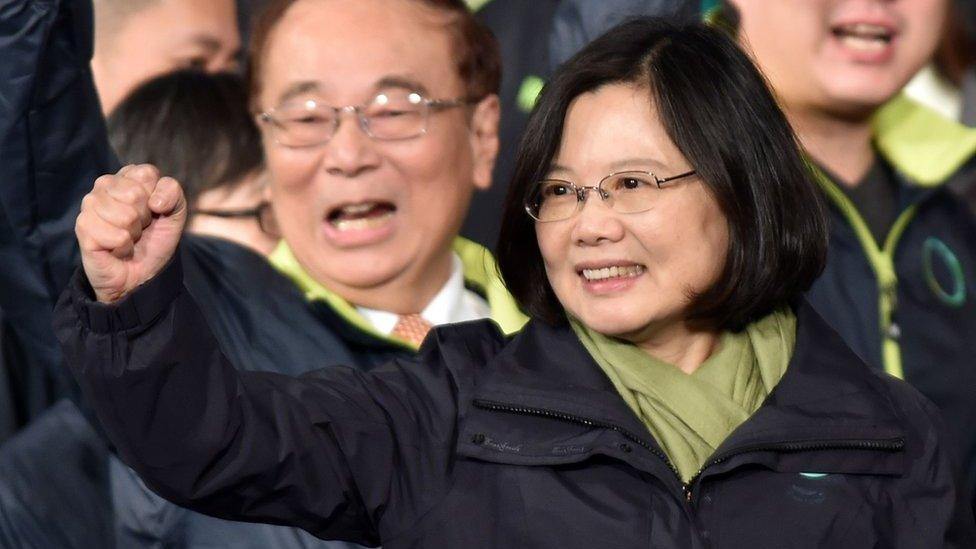
- Published12 December 2016
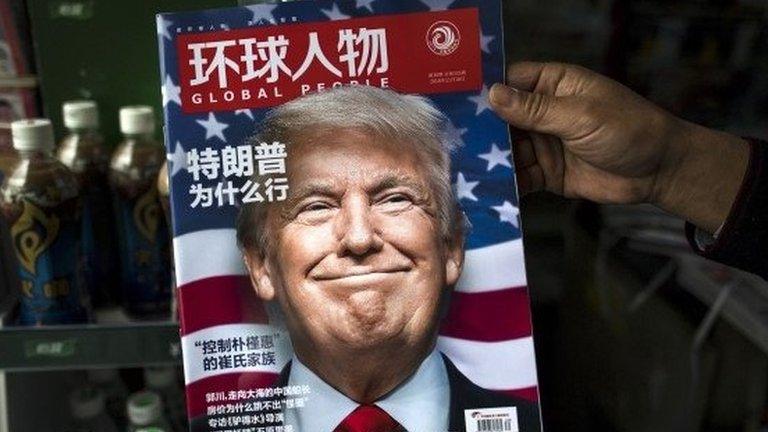
- Published14 October 2024
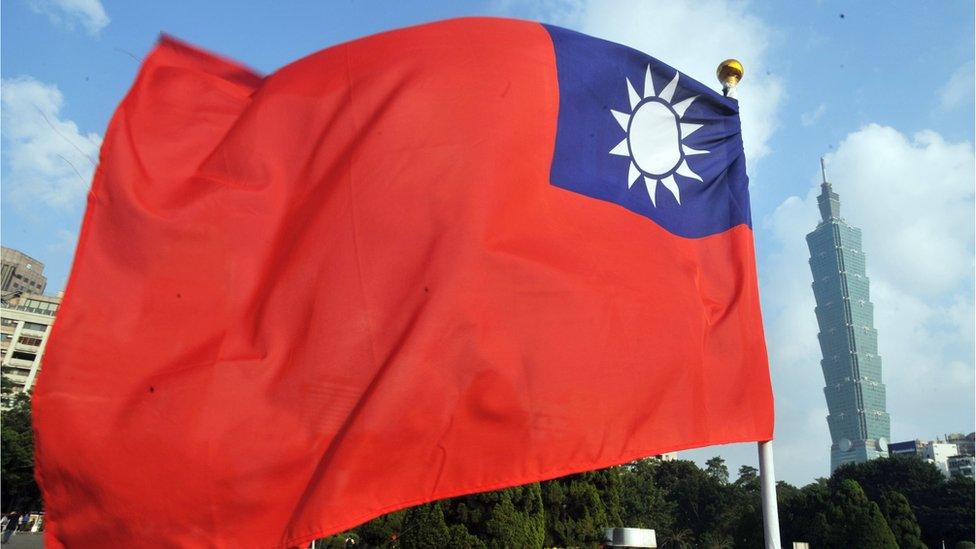
- Published6 October 2021
